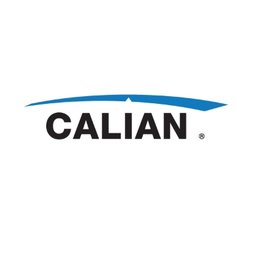Research Technician II
Research Program
Dr Jane Batt runs a research program aimed at discerning the cellular and molecular mechanisms underpinning skeletal muscle atrophy and injury/degradation in critical illness and trauma. Experimental techniques utilized are broad and involve cell culture and animal (rat, mouse) models of muscle injury and repair, in additional to translational experimentation in humans. The program also aims to train the next generation of scientists and therefore employs undergraduate and graduate students and Post Doctoral Fellows.
The Batt lab is currently looking for a Research Technician II.
This position performs routine, along with some ad hoc laboratory-based research activities involving laboratory research tests, experiments, techniques, and procedures. This position requires the ability to strictly adhere to research protocol and work with the Investigator and senior lab members to carry out various technical aspects of the research study while also providing clerical support. This position alsorequires data analysis and experiment design. This position is building on the skills and knowledge obtained as a Research Technician I.
Don’t meet every single requirement? Studies have shown that people in underrepresented communities are less likely to apply to jobs when they don’t meet every single qualification. We are dedicated to building an inclusive workplace, so if you’re excited about this role but your past experience doesn’t align perfectly, we still welcome you to apply.
Duties & Responsibilities:
This position includes all of the duties/responsibilities of the Technician I position, as well as:
Laboratory/Animal Tasks (50% of work time)
Establishes, optimize, and troubleshoots new experiments/assays.
Ensure appropriate equipment and/or new reagents are purchased
Select and prepare equipment for routine/intermediate experiments and/or assays and collaborating to determine lab set up requirements, with specific experience with RNA extraction and quantification (eg RTqPCR, ddPCR), protein extraction and quanfication (eg Western blotting, immunohistochemistry, microscopy)
Perform well-defined, routine experiments, or other procedures and assists with intermediate experiments as needed.
Apply established standards when performing routine/intermediate level experiments and prepares biological samples (human or animal whole muscle or cells) for research projects and/or experiments.
Collect experimental data, verifying results and passes on findings by performing routine data entry.
Animal (rat and mouse) handling and restraint.
Colony maintenance and health monitoring.
Animal anesthesia monitoring and surgical nursing.
Obtain animal blood sample and administer injections.
Process harvested muscle tissue for histologic analyses, RNA and protein extraction and experimentation
Maintain cell lines and primary cell cultures, maintaining strict sterility and biohazard handling requirements
Be competent with sterile technique working with biohazard safety cabinet (level II) and experienced with all manner of cell culture experiments (eg transfection, RNA extraction, protein extraction, immunocytology)
Perform routine maintenance, calibration and troubleshooting on laboratory instruments.
Follow rules and procedural instructions when working within and maintaining a biohazardous research environment.
Provide basic technical support to trainees on good laboratory practices.
Attend and participate in lab meetings, phone conferences, actively participate in ensuring laboratory efficiency and safety, and communicate and coordinate effectively with the lab members and their research collaborators.
Observe details and maintain accurate records of experiments and results.
Gather and compile experimental results and assist in the preparation of data for reports and publications.
Recognize and investigate apparent reasons for obvious deviations in results obtained.
Research regulations, compliance and guidelines with the Animal Care and Use Program
Non-Laboratory Research Tasks (25% of work time)
Collection, transcription, and interpretation of data, and preparing statistical reports.
Present research related technical information, including assisting with methods sections of study reports when necessary.
Assist in basic analysis of research data by performing tasks such as assembly, compilation, and summary of statistical and other data.
Perform literature searches on requested topics through library database and provide relevant articles to PI or research team.
Monitor and prioritize workflow to ensure accurate and timely reporting of results.
Maintain accurate records of procedures, animals, samples, and inventories
Participate in data analysis and manuscript preparation
Compile data, analyzes and interprets experiment results or data.
Preparation of scientific summaries, reports, slides, presentations, and scientific manuscripts will also be required.
Maintain an appropriate knowledge base by performing regular reviews of the literature and stays updated on procedure manuals for experimental and laboratory standards.
Write a variety of documents such as technical and procedural sections for research reports and standard operating procedures.
Administrative Duties (25% of work time)
General office duties e.g., filing, mailings, courier services, photocopying, etc.
Monitoring and ordering supplies.
Routine organization and maintenance of laboratory space, supplies and equipment.
Maintain data documentation, physical and logistical storage of records, in accordance with hospital policies, relevant privacy regulations and WHIIMIS regulations.
Design and update source documents, study materials, etc.
Submission of safety reports to the Animal Care Committee within a timely manner.
Update lab monitoring logs as applicable i.e. – 70 freezer logs, sample storage logs, etc.
Update lab licenses on file with research facilities for all laboratories used within a study (collect relevant safety information, permits etc. from team members).
Provide administrative support.
Assist with developing standard operating procedures, maintain and document facility sanitation, and ensure safety procedures are followed, documented, and maintained.
Inform the Facility Manager of issues that arise or need repair to maintain the required standards.
Be available via phone by security for after hours freezer malfunctions
Performs cross functional and other duties as assigned and/or requested.
All staff are expected to carry out their assigned duties and responsibilities in a manner which prioritizes patient and employee safety, and confidentiality. Key accountabilities in this regard include:
Strict compliance with patient/employee confidentiality practices and policies.
Strict compliance with patient/employee safety practices and standards.
Appropriate identification, reporting and response to patient/employee confidentiality breaches in accordance with established policies and procedures.
Appropriate identification, reporting and response to patient/employee safety risks and incidents/events in accordance with established policies and procedures.
Qualifications:
College Diploma with 3 years related experience or Bachelors of Science with 1 year related experience OR demonstrable equivalent combination of specialized education and experience
Specialization in Molecular Biology, and for microscopy. [ASSET]
Demonstrated knowledge of medical and scientific terminology, preferred.
Basic laboratory skills, familiar with molecular, biochemical and/or immunological techniques.
Familiar with handling of rodents for experimentation, colony maintenance and health monitoring.
Experience maintaining material and lab equipment.
Experience with surgical, and microsurgical, techniques (survival surgery under anesthesia, and non-survival surgery) is required
Must be comfortable and have experience working with animals
Must have basic knowledge of animal anatomy and physiology
Basic computer skills, particularly database, spreadsheet, and word processing.
Software compatible with machinery, such as ImageStudio for the Li-Cor imaging system
Software’s for complex microscopy imaging and analyzing data and molecular biology design
[Basic] Computer Skills
[Basic] Excellent communication (verbal/written) and interpersonal skills are necessary.
[Basic] Ability to work independently and as part of a team.
[Basic] Excellent attention to detail and proven ability to learn new skills.
[Basic] Proven ability to learn new skills.
[Basic] Excellent organizational skills to manage multiple projects in a timely manner and flexibility to adapt to changing workload.
[Basic] Exceptional record keeping skills.
[Basic] Able to understand written and verbal directions.
[Basic] Professionalism
[Basic] Self-motivation.
[Basic] Ability to prioritize and meet deadlines.
Unity Health Toronto is committed to creating an accessible and inclusive organization. We strive to provide a recruitment process that is barrier-free and in compliance with the Accessibility for Ontarians with Disabilities Act (AODA) and the Ontario Human Rights Code. We understand that you may require an accommodation at any stage of the recruitment process. When you are contacted, please inform the Talent Acquisition Specialist and we will work with you to meet your accommodation needs. We want to emphasize that all accommodation requests are handled with the utmost confidentiality, respecting your privacy and dignity.






